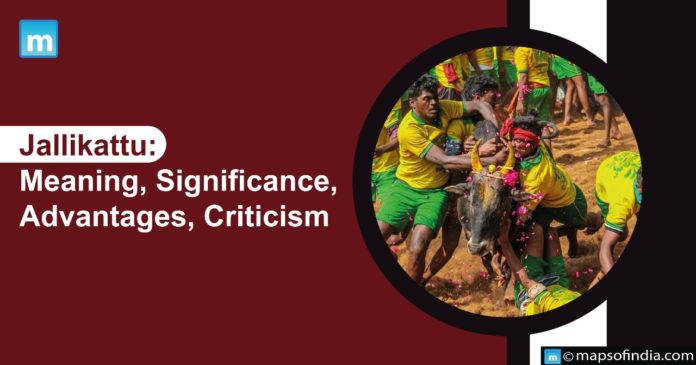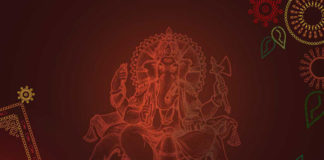A sport known as Jallikattu is played during Mattu Pongal. The second last day of the four-day Pongal celebration is known as Mattu Pongal. Eru Thazhuvuthal and Manju Virattu are other names for it. The word “Jallikattu” is a combination of the terms “Calli” (coins) and “Kattu” (tie), and it refers to the practise of tying a bunch of coins to a bull’s head.
Details about Jallikattu Sport
There are mentions of individuals having pleasure in seeing and participating in Jalikattu in Silappatikaram, one of the significant Tamil classical age epics, as well as in two other prehistoric works of literature, Kalithogai, and Malaipadukadaam. Jallikattu is a traditional game. It is said to date back to the Tamil Classical Era dating from 400-100 BC. A 2500-year-old cave art also allegedly shows a guy in charge of a bull.
Other names for it include
- Pidithal Pollerudhu
- Pidithal Madu
- Yeruthazhuvuthal
The Jallikattu celebration at Alanganallur, close to Madurai, is the most well-known.
Significance in Tamil Society
Jallikattu is a conventional means by which the peasant society protects their local bulls of pure origin. Preservationists and peasants contend that Jallikattu is a method to safeguard these male bulls that are generally utilised solely for meat, if not for farming when cow breeding is frequently an artificial procedure.
Among the well-known indigenous cow breeds utilised for Jallikattu are, Umbalachery, Bargur, Pulikulam, Kangayam, and Malai Maadu. Locals venerate the breeders of these superior breeds.
Actions by the law on Jallikattu
In 2011, the Centre included bulls in the registry of creatures whose instruction and display are forbidden. In response to a petition that referenced the 2011 warning, the Supreme Court outlawed bull-taming activity in 2014.
Current Status:
Jallikattu’s current legal status is that the Tamil Nadu state government has authorized these events. However, this has been contested in court. The Jallikattu issue was sent to a Constitution Bench by the Supreme Court in 2018 and is now on hold.
Advantages Of Jallikattu
Jallikattu, an ancient game designed to welcome the bull, represents the state’s regional pride. Native varieties like Kangayam and Bangur are the only bull breeds employed in the sport. These kinds of bull are said to be the fiercest. The breeds are raised more with the aid of Jallikattu, increasing their otherwise declining numbers. (As stated, there were around one million Kangayam bulls in 1990. By 2017, the number has decreased to 15000.) Consequently, the Jallikattu sport offers an opportunity to raise the bulls.
Criticism of Jallikattu
The game is alluded to as a bull-taming competition, which is cited as breaking the Prevention of Cruelty to Animals Act in an argument. Bulls may sustain injuries when participating in activities, which might raise concerns about animal welfare. Moreover, one of the critical components of the directive principles of state policy (DPSPs) entrenched in Article 51 A of the Indian Constitution is empathy for all living things.





